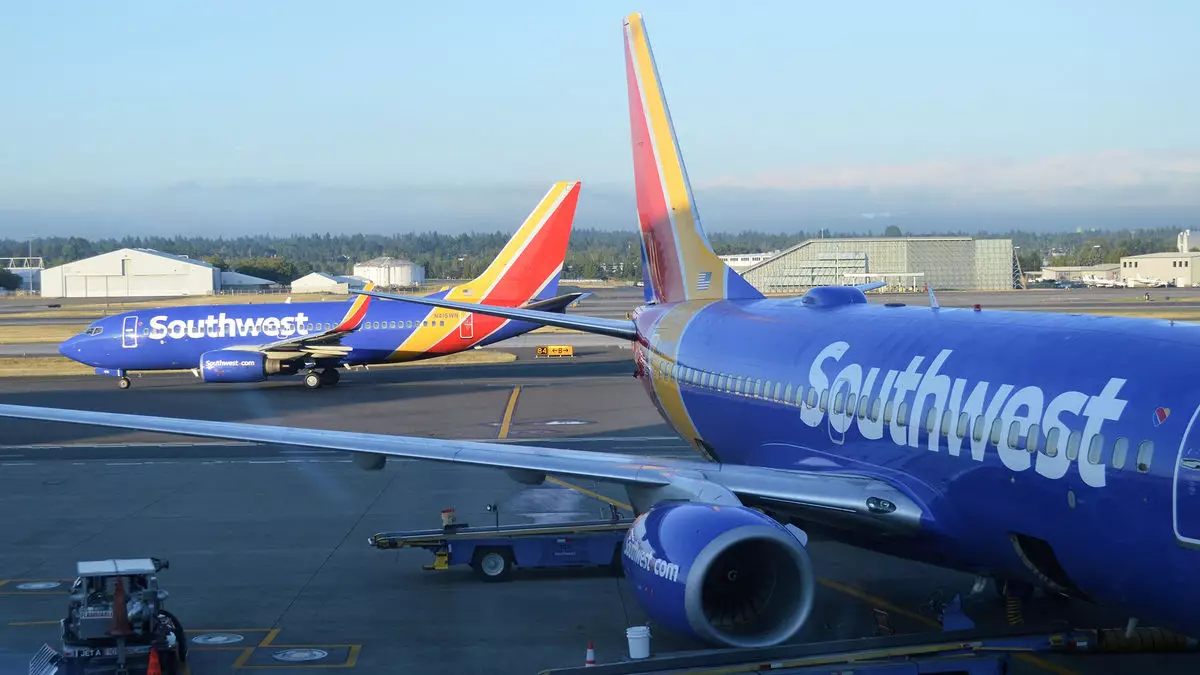The airline industry continuously evolves in response to changing market dynamics, and Southwest Airlines is no exception. Recently, the influential shareholder Elliott Investment Management has stepped back from a proxy battle aimed at gaining control of the board of directors. This strategic withdrawal marks a significant turning point for Southwest, which is navigating challenges that require thoughtful leadership and innovative strategies. This article explores the implications of this transition, the newly formed board, and the strategic direction that lies ahead for Southwest Airlines.
Elliott Investment Management, which owns an 11% stake in Southwest, initiated its campaign to reshape the airline’s governance earlier this year. The hedge fund cited concerns over stagnant innovation and declining financial performance, calling for systemic changes including the removal of CEO Bob Jordan and Chairman Gary Kelly. However, rather than pursuing an aggressive push for a proxy vote slated for December, a compromise has been struck.
This shift illustrates a broader trend in corporate governance where stakeholders often prefer collaboration over confrontation. Elliott’s decision to withdraw its challenge suggests a recognition that effective change can occur through negotiation and partnership. Notably, the agreement has allowed Southwest to maintain its current leadership, albeit in a weakened capacity, thus ensuring continuity during a transformative period.
Composition of the New Board: Balancing Fresh Perspectives with Existing Expertise
As part of the agreement, Southwest has announced the incorporation of six new board members, a mix of industry veterans and professionals with diverse backgrounds. Among them are notable figures such as David Cush, former CEO of Virgin America, and Dave Grissen, a former executive at Marriott International. The intent behind these appointments is clear: to infuse the board with fresh insights while leveraging existing knowledge of the airline and hospitality sectors.
However, it is worth critiquing the balance of influence within the new board structure. Although Elliott’s input has resulted in key appointments, it’s essential to consider the remaining majority of board members who were appointed without its endorsement. This dynamic could lead to tensions in strategic decision-making processes, especially as the airline strives to address the challenges brought forth by Elliott.
Bob Jordan’s tenure as CEO faced scrutiny from Elliott, who advocated for new leadership to drive innovation. In a surprising turn, Jordan retains his role, albeit under the watchful gaze of new board members. This retention underscores a broader point about corporate resilience; often, companies benefit from stability during turbulent times.
Conversely, Gary Kelly’s expedited departure date, set for November 1, reflects a concession to Elliott’s demands while marking the end of an era. Kelly has been with Southwest for nearly two decades, overseeing significant growth and developments. The upcoming transition raises questions about how the new leadership will balance innovative strategies with the legacy of the company’s past.
Looking ahead, Southwest’s strategic initiatives will be critical to reversing its declining financial trajectory. The airline has set ambitious goals: an operating margin of 10% by 2027 and the introduction of various customer-centric offerings such as extra-legroom seating and assigned seating. The planned partnerships, starting with Icelandair, aim to broaden its operational footprint while enhancing service offerings.
Further, operational improvements, such as increasing fleet utilization and optimizing aircraft turnaround times, reflect a commitment to efficiency that must underpin these initiatives. However, the real challenge lies in executing these strategies effectively. Continuous monitoring of performance metrics will be vital to determine whether these measures yield the desired financial outcomes.
The resolution of Elliott’s proxy challenge has set the stage for a critical phase in Southwest Airlines’ evolution. The newly constituted board, led by a mix of familiar faces and new influences, is tasked with not just maintaining but enhancing shareholder value. As the airline races towards ambitious goals in a highly competitive marketplace, it is crucial that leadership remains agile, responsive, and aligned strategically. The upcoming months will be revealing, determining whether these shifts will result in the revitalization of Southwest Airlines or merely a momentary adjustment in its long-standing trajectory.


Leave a Reply